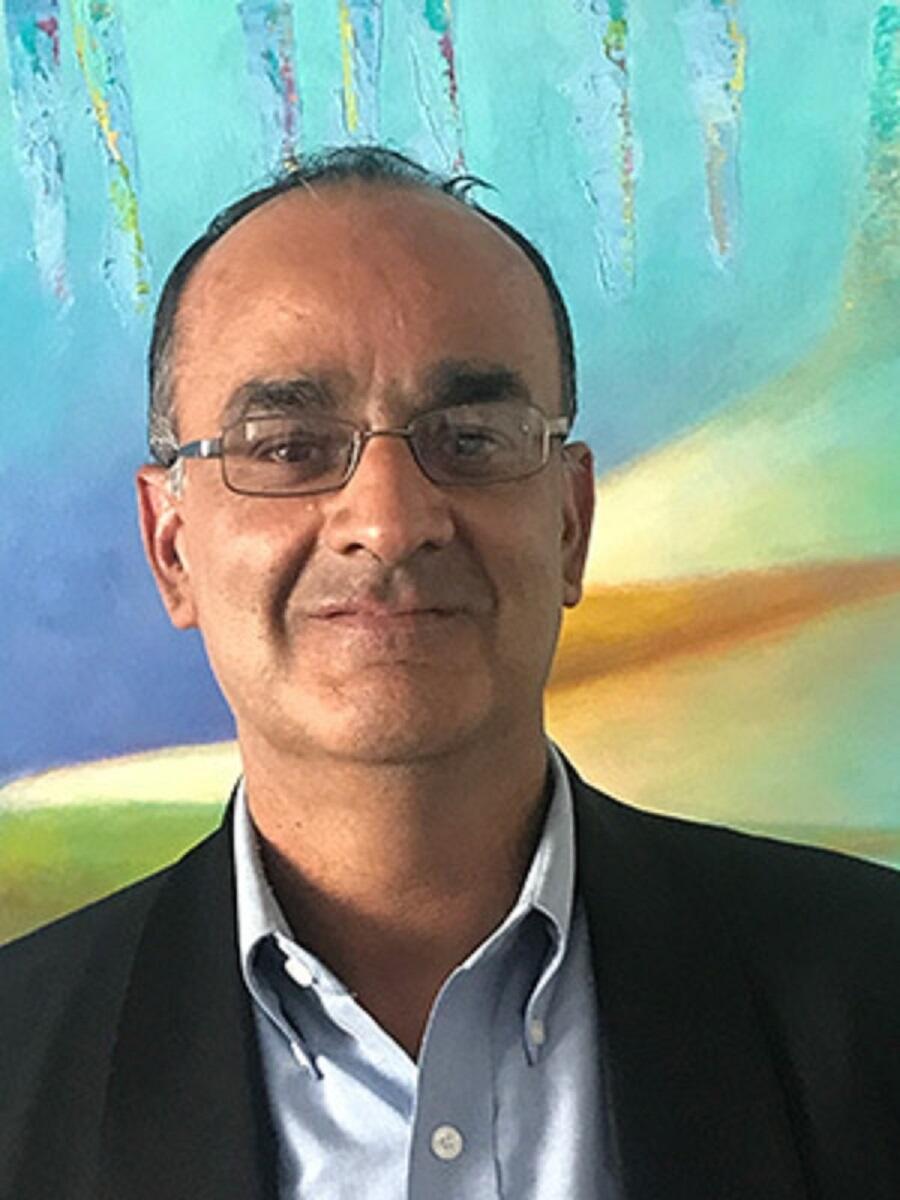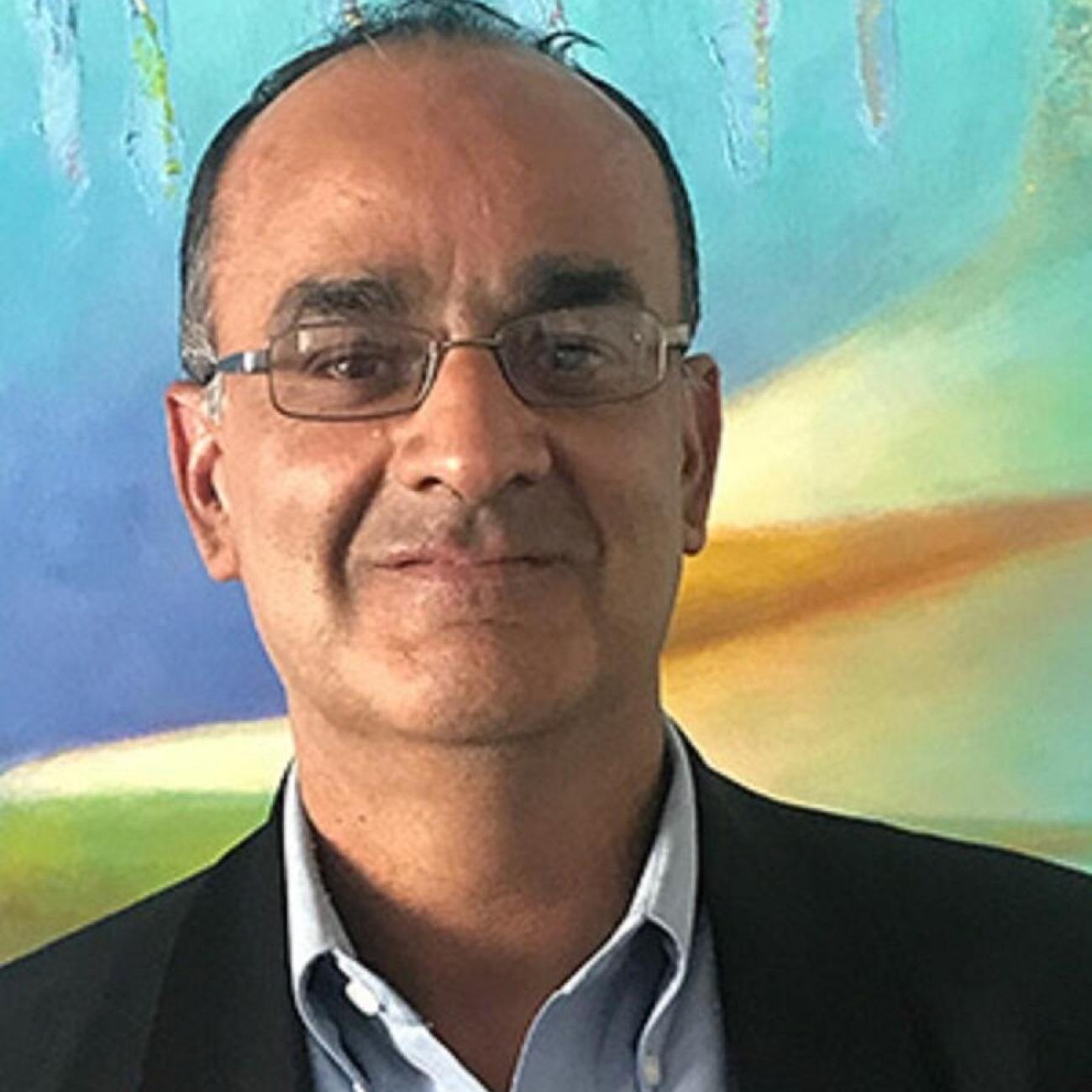
Meet Ashish Sahni, the new executive director of the Berkeley Institute for Data Science (BIDS). Sahni joined the UC Berkeley research and training organization – and Division of Computing, Data Science, and Society (CDSS) affiliate – this month from UC San Francisco (UCSF), where he served as chief of staff for the Department of Surgery. He also taught economics at Berkeley’s extension school. Before that, Sahni worked in a variety of leadership positions across the UC system and at the White House Office of Management and Budget.
We spoke to Sahni about why he's excited to join the BIDS community, what he hopes to accomplish in his new role at BIDS and the opportunities he sees for BIDS and CDSS as part of Berkeley and the broader UC system. This Q&A has been edited for length and clarity.
Q: Tell us a little about yourself.
A: I was born in Hong Kong, but grew up in the Bay Area and then went to Cal. So nice to be home! I spent a few years in Washington, D.C. and started working for UC where I spent the last 25 years on three campuses. My wife works at UCSF and my son (now in high school) was even born at a UC hospital and went to a UC pre-school. Basically, my whole family bleeds blue and gold!
Q: Why are you excited to join the BIDS and CDSS community?
A: I went to Berkeley as an undergraduate. It made me who I am today. To be part of this great campus again now as an administrator is a privilege.
Also, data science has become central to every field and discipline. There’s so much potential to use data for societal good – to address the most pressing issues of our times like climate change, economy, equity, and health. The idea of helping to bring experts from across disciplines to problem solve – as BIDS does best – is both exciting and rewarding.
Q: What are your top three priorities for your first semester at BIDS?
A: My priorities are to provide leadership and support in creating the new college and planning for the Gateway Building; to strengthen existing and create new partnerships with foundations and the corporate sector; and to build community, a challenge that’s magnified by the ongoing pandemic.
Q: You brought up that CDSS is on its way to becoming a college. What opportunities are you looking forward to for BIDS and CDSS as the division grows?
A: I am looking to elevate and publicize the impactful research that is happening all around us and to remain inclusive and interdisciplinary in all that we do. I think this will ultimately define our success.
Q: Can you expand on that?
A: The pandemic really shines a light on two things. One, how integrated we are as people and as societies. We can't just isolate anymore. And two, as I mentioned earlier, how it really takes experts from all disciplines in all fields to solve a problem. We are a long way from getting to the other side of the pandemic, I think, but we'll never get there unless we all have contributed our own field of expertise or disciplinary expertise to solve the problem.
Berkeley is the number one public university in the country, if not the world. We have the expertise here and the will of people to work together. This is what makes Berkeley great. I learned that many years ago – I'm not going to tell you how many – when I was there as an undergraduate. Certainly, I see that now as an administrator. There's not just the expertise to do collaborative, good work, but also the will to work together across disciplines.
I think CDSS is really the umbrella organization that brings people together. There is less concern about territory or ownership. The focus is on solving problems. I think Berkeley is so uniquely situated, where people have both the expertise, but also a true will to do good. That's what makes us who we are. And as a proud bear, that really excites me.
Q: As someone who's spent time on many UC campuses, what unique value do you see BIDS and CDSS playing in the broader UC system?
A: I will caveat this by saying I haven't even completed one month here at BIDS, so I am still learning a lot about who we are and what we want to be when we grow up. But I have been in the UC system for 25 years, and I've been on three campuses. I've seen how the sausage is made. I've tasted it. It's really good.
One of the things I certainly have seen over the years is that a lot of the work that happens across disciplines – or even across campuses – really is still within the narrow confines of a discipline. It's people getting together around a very specific healthcare issue or an economic issue or a social inequity issue, but there really isn't breadth. There is depth, but there isn't the breadth that I think CDSS can bring to problem-solving.
That is very exciting. That is the way forward. That is the way we have to solve problems. Again, with the caveat that I've been here three weeks.
So, our unique values are to be inclusive and interdisciplinary in our approach to solving societal problems, and to use the ever-growing amount of data to solve problems cheaply and accurately, and at a scale where the world can benefit from our work.
Q: One thing you’ve touched on in this interview is the idea of doing interdisciplinary research. Sometimes academia can disincentivize this kind of work. Can you talk about that issue and where BIDS comes into play in that incentive structure?
A: That limitation is very real, and it's not new. It's how it's been in the academy for a very, very, long time. So it's not like it's a problem that we just discovered, and we're going to try to solve it.
But what's exciting when you get around that is what BIDS is trying to do: We're trying to build partnerships with people outside of the academy. Having partnerships with foundations or even the private sector helps us really focus on the problem and how we solve the problem rather than on the process. I think that's a way to get around some of those institutional barriers, if we want to call them that, that tend to exist in the academy.
BIDS has been really committed to doing these partnerships. This is represented by all the partners we have already outside of the academy. And we’ll continue in that direction. Certainly, I will do all I can to move BIDS in that direction. It’s not just because we need to raise money for practical reasons, but because, like I said, it helps to bring the focus onto the problem rather than the process.
Q: What lessons have you learned from the other UC campuses that you'd like to apply here?
A: I often joke that UC actually means "Unending Consultation" given how hard it is to get things done on a UC campus. But that is also to be expected given the size, scale, and larger mission of each campus. But also, seriously, I have learned a lot about both leadership and management in my 25 years at UC. In particular, I talk a lot about aggressive listening, supporting the whole person, and encouraging everyone to lead from where they are.
Q: What’s one fun fact about you?
A: I started at UC Berkeley as a freshman in the Cal Marching Band – and got kicked out soon after. It turns out, it is a lot harder than it looks to both march and play an instrument!
Q: Anything else you'd like to emphasize, clarify or add?
A: At the end of the day, we can disagree about a hundred different things. We can all have our little areas of expertise and even our own areas of control, if you will.
But what should excite us every single day is that we're in the business of creating knowledge and creating social mobility. We should never forget that.
That's why I've been in the UC system for 25 years, and it’s why I’ll retire here. If there’s anything that reflects my value system and who I am as a person, it’s that point.

